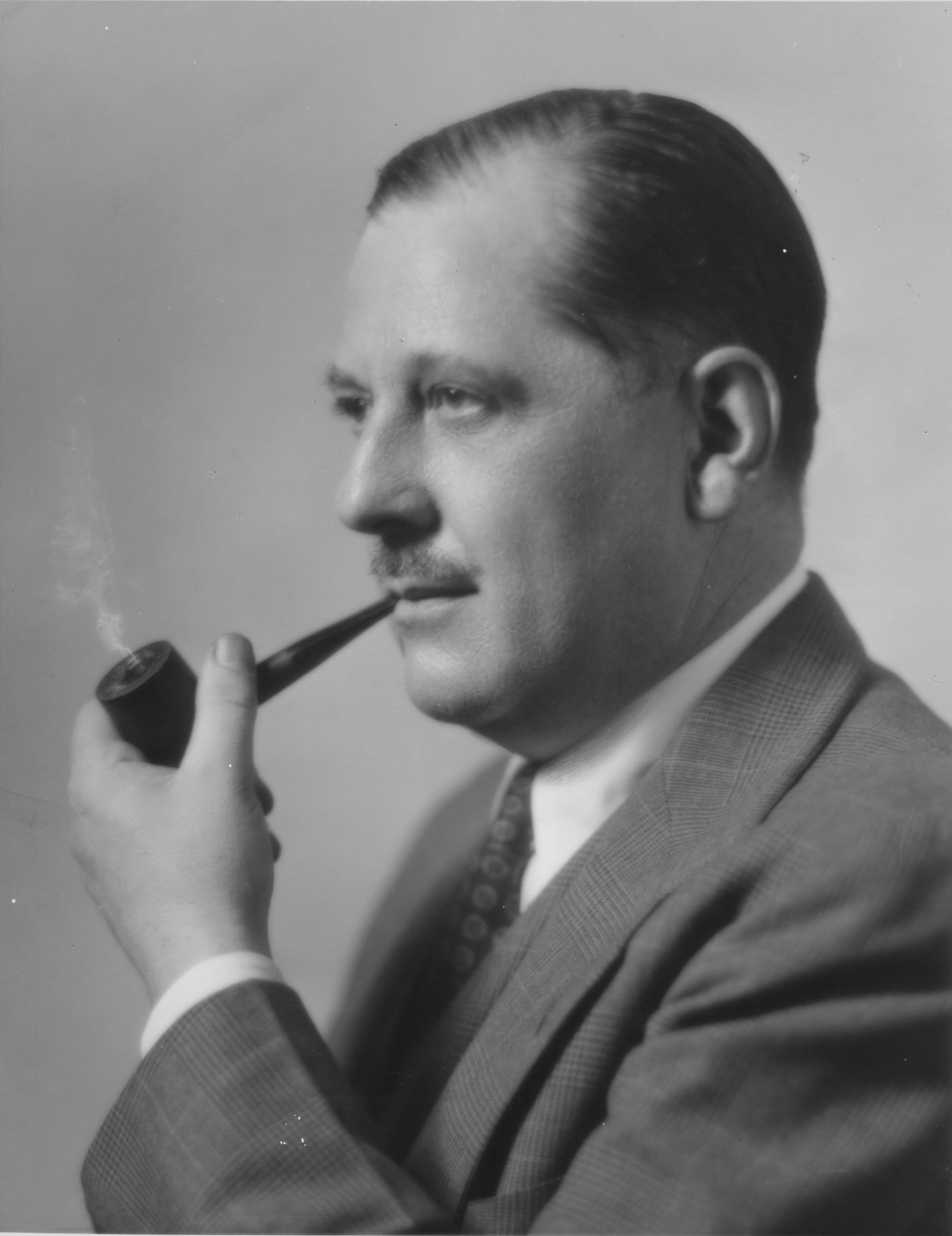Thurman W. Arnold, Lafayette S. Foster Professor of Law, 1930-31, 1931-38
Thurman W. Arnold
REFERENCES:
Robert W. Gordon, “Professors and Policymakers,” in Anthony T. Kronman, ed., History of the Yale Law School (2004).
Thurman Wesley Arnold (1891-1969) was one of the most prominent Legal Realists at Yale in the 1930s. Arnold was recruited to the Law School faculty in 1930, and remained at the school until 1938, when he was appointed Assistant Attorney General in charge of the Antitrust Division of the Department of Justice. Prior to assuming that position he had worked part time as a consultant on several projects for the New Deal administration.
During his years on the faculty, Arnold authored numerous law review articles and became one of the most prominent Legal Realists through publication of two best-selling books, written for a lay audience, The Symbols of Government (1935) and The Folklore of Capitalism (1937). In them, Arnold contended that much of legal and economic rhetoric consisted of symbolism and ritual—less designed to describe reality than to shape and mask reality. For example, Arnold described the antitrust laws as a “mythology” based on an ideal of ruthless, individual competition that had no bearing in the practical reality of large corporations, with the result that the laws actually “promote[d] the growth of great industrial organizations by deflecting the attack on them into purely moral and ceremonial channels.” The Folklore of Capitalism at 212.
As a pioneering leader of the Antitrust Division, however, Arnold was perhaps the most aggressive trust-buster in the division’s history, enlarging the staff and budget, bringing over 100 cases and starting over 200 investigations, including inquiries into industry-wide pricing policies, guided by Walton Hamilton. He restructured the division to emphasize an anti-monopoly strategy with “consumer welfare” (competitive prices) as the goal, rather than a reduction in the concentration of power per se. That approach was consistent with the view expressed in his writings, that large organizations were a “practical necessity.”
Arnold served in the Antitrust Division until he was appointed to the U.S. Court of Appeals for the D.C. Circuit in 1943. In 1945, he left the bench and founded the Washington, D.C. law firm that still bears his name, Arnold & Porter. From Washington, he often commuted to Yale to continue to teach antitrust law. It was a true labor of love. Arnold resigned from the Law School to pursue a career in public service, but the termination of his employment was not quite voluntary. As he put it, “The Yale Corporation inflicted an injury on the cause of legal education from which it has not recovered. But one can hardly blame them. They were so obsessed with the narrow idea that a Yale professor should spend a little time at Yale that they were blind to the broader consequences of what they were doing. I felt sad and dispirited at the news. I had lost my tenure at Yale, a place I loved, and at which I had spent seven of the happiest years of my life. The chances of ever getting back did not seem to be particularly bright.” Fair Fights and Foul 136 (1965).
At the Law School, a prize for the best student argument in the Moot Court competition was established in his honor in 1954.
